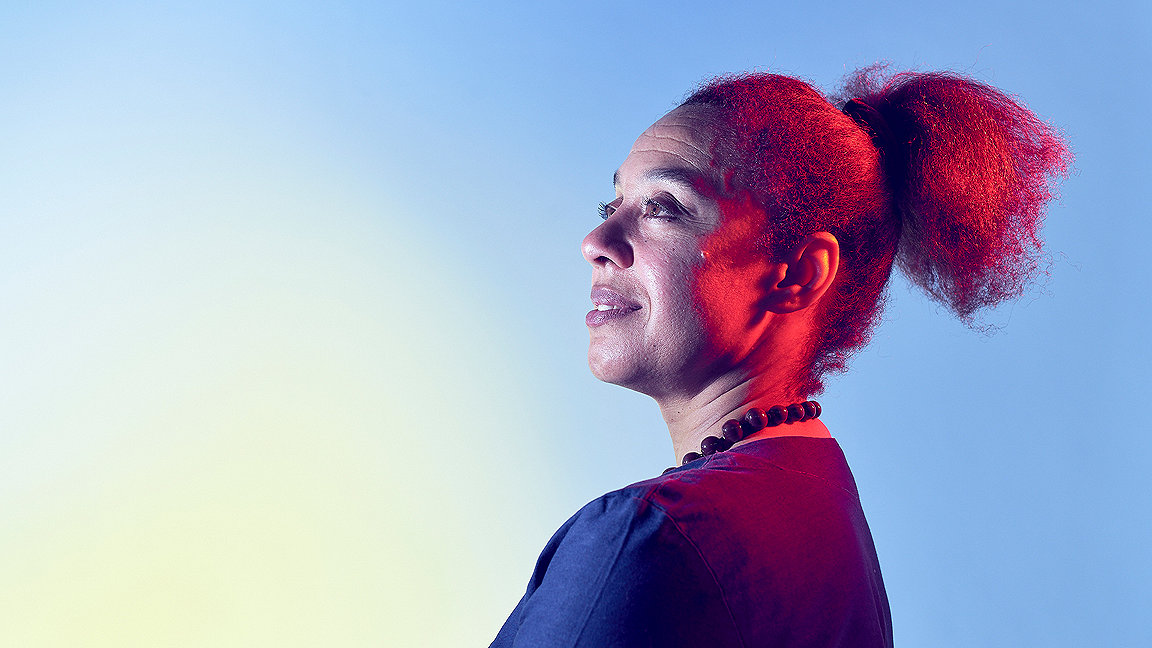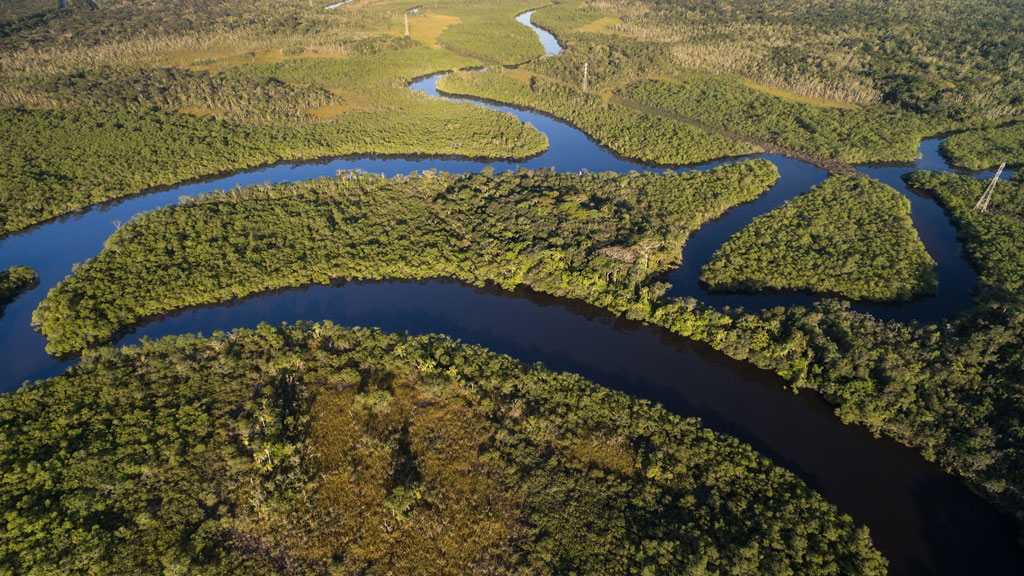
Diane Dumashi FRICS. Photo by David Vintiner
It has been a few short weeks since Diane Dumashie FRICS was elected president of the Fédération Internationale des Géomètres (FIG), an organisation within which she has long been a successful advocate.
A former member of RICS Governing Council, her work over the past few years has invariably involved travel but the past month or so seems to have been full-on even by her schedule: sitting in the sun-filled conservatory of her home in Dorset, southern England, she breathes a sigh of relief that she has no flights scheduled for the next few days.
Elected on a manifesto of promoting surveying as a profession that has a vital role to play in tackling global issues, she appears unfazed by grappling with challenges as critical as sustainability and equality. “I stood on the platform of clarity, purpose and action and being effective in collaboration and communication,” she says. “One of my big headlines is that professionals have to remain relevant and take action on the big issues of the time ... I do love finding simplicity in complex situations.”
Diane knows all about complex situations. For the past decade, one of her main areas of work has been improving land rights in the global south, with a particular focus on Africa. It’s a situation so relentlessly knotty that many struggle even to comprehend, much less take steps to improve it: she is talking about countries that have limited formal registration of ownership or rights over land enforceable in a formal court of law or through customary structures.
In many, many cases, residents have lived on or had access to land with relatively poorly defined or ambiguous ownership and have been open to exploitation for decades, perhaps even generations. There can also be different degrees of ownership – perhaps someone has the right to use an area for grazing without actually acquiring the land – and Diane is involved and contributed to the UN-led network, the GLTN, that has developed the Continuum of Land Rights which helps to conceptualise these undocumented rights.
“Not everyone can go to the Land Registry,” she says. When land is sold, especially to people or corporations outside the local community, a potentially fragile system of rights that have been assumed rather than formalised, is hit by this new ownership. “If it’s not documented, it’s very hard to prove those layers of ownership.”
She gives the example of Ghana – a country she knows especially well, she is half-Ghanaian – where only about 20% of land is bought and sold through a formal statutory measure and registered, mostly in urban areas. “For the rest, you rely on the customary framework administered by the chief or sub-chief. To capture all rights means discussions with the community – through the Global land tool network surveyors have helped to develop land tools to get us a database that is participatory.”
It is often women that are most discriminated against by this lack of formal ownership, and it’s why she was part of the effort to develop the Gender Evaluation Criteria Matrix to help them access their rights. “In many of these traditional situations, women come off worse. If they divorce, they are likely to lose rights within their husbands’ families and they have no right to that land. They go back to their own families and they find their families have taken over the land that was theirs.”
“I do love finding simplicity in complex situations” Diane Dumashie FRICS, president of the Fédération Internationale des Géomètres
The matrix is useful, not because it provides a magic wand but because it empowers by providing a framework for communities to work through in order to harness their land rights. The Brazilian city of Recife, where women had occupied informal settlements for many years with little hope of having their right to live in their homes regularised, was a particularly good example.
“The local authority wasn’t that helpful,” she explains with, one imagines, impressive understatement. “The matrix was a way in which the people who didn’t have secured land title knew the right questions to ask of people in authority, how to engage so that they could see they were serious. The laws are there but the rights aren’t being enforced in practice. We train [community leaders], who can pass the knowledge down to everybody else. In the end, 8,000 units were regularised – absolutely mind-blowing.”
Ultimately, many of Diane’s achievements have been the result of tireless collaboration and she has a gift for connecting with different organisations – our conversation is littered with various acronyms pursuing specialised goals with whom she has worked. Working with these professionals across the continent, she has established and grown FIG’s Africa Regional Network.
“In the early days, African land professionals weren’t very visible in FIG,” she says. This and other initiatives across the continent, such as a raft of African universities, has led to a surge of interest in the profession. “It’s very dynamic and people are engaged.”
Championing these professionals is, she believes, crucial because the problems that the world faces in terms of climate change, population pressures and particularly, land degradation, can all be tackled in Africa first: “On the critical path to land and resource planetary sustainability is the continent of Africa. Its land mass is enormous and one way we get out of these awkward problems is for our governments to work with Africans to support the needs of the planet and people to do something better. It is an obvious place to start the dialogue, to halt planetary land degradation, for example.”
“On the critical path to sustainability is the continent of Africa. Its land mass is enormous and one way we get out of these awkward problems is for our governments to work with Africans to support the needs of planet.” Diane Dumashie FRICS, president of the Fédération Internationale des Géomètres
As she points out, this isn’t just about making life more comfortable for the people of Africa. Europe has a footprint that is much larger than its land mass which means it is reliant on countries outside the continent to support its population, so it needs friendly and productive neighbours. “It’s really scary. It shows why these conversations at COP27 about repatriation are happening.”
She speaks about how she wants to champion the UN Habitat’s five Ps of sustainable development (people, planet, prosperity, peace and partnership) in FIG’s work and that is partly about fully recognising the diversity of skills in the surveying profession and making it as “inclusive as it can be. It means attracting new talent by showing how instrumental we are in the climate action agenda. That’s exciting if we just get to grips with it.”
Her initial pathway into surveying was an interest in geography at school that pushed her into studying surveying. Growing the remit of surveying for a new generation of professionals is a priority for her presidency. She hopes to encourage younger people who aren’t thinking solely in terms of building sites or office blocks or agricultural rents to expand the discipline to include those working in technological applications such as geo-spatial development and big data. The aim is to bring together different areas of the sector to collaborate, collaborate, collaborate.
“There’s a whole strand on Global Geo-spatial Information Management that could help with land administration,” she says. “Ultimately, I do believe that our profession works for societal benefit.”
Don’t miss a single Modus article – sign up for the newsletter.


